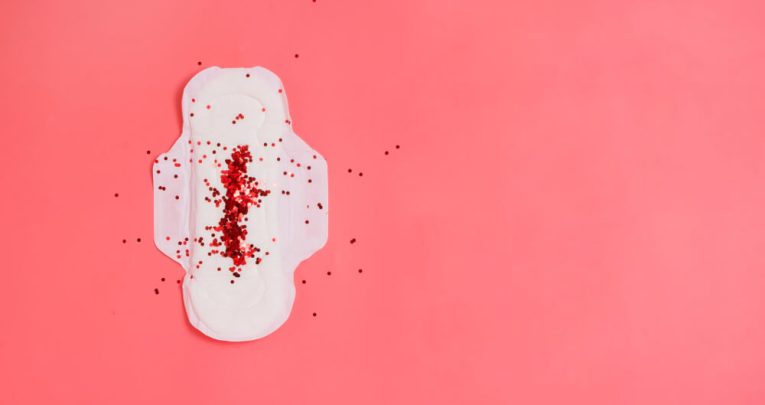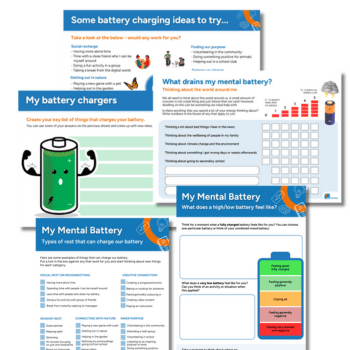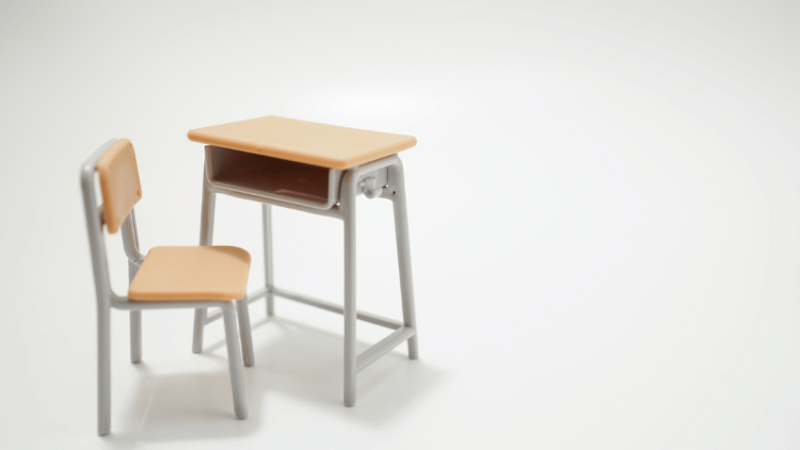Is your School Doing Enough to Tackle Period-Related Anxiety

With your students’ self-esteem, concentration and even attendance at stake, is your school doing enough to tackle period-related anxiety, asks Anna Blewett…

- by Anna Blewett
- Freelance journalist

You’re 13. Squeezed into a neat line of your peers and waiting for the rest of the school to file in for assembly, you jiggle nervously. Physical proximity to others brings an unwanted self-consciousness.
Are your thighs splaying too wide on the bench? Can others hear your breathing? Can they smell you breathing? “Err, you stink of garlic!” You’ve been braced for it all day.
Then, just as the head of year is rising to her feet on the stage, you feel it. The single most dreaded sensation. A trickle of warm blood. Not today. It wasn’t supposed to be today.
Surely, surely, this can’t be happening? They said it’ll be an eggcup-ful across the whole five days but this feels like a Niagara.
You take a mental inventory of layers: knickers, tights, grey skirt. Grey, oh maaaan. Why couldn’t it have been black?
Panic sets in. Three thin layers of fabric vs a 25-minute lecture on the school band’s trip to Hungary, during which you will bleed out through your pants in front of everyone. Agghhrrrrrrrr.
This nightmare haunts hundreds of girls – and maybe women – in your school every month.
It’s 12 months since girls’ rights charity Plan International UK published findings that one in 10 girls in the UK had been unable to afford sanitary wear, and that one in seven had asked to borrow pads from a friend because they couldn’t buy them themselves.
Alongside their findings on what would soon be termed #periodpoverty, Plan International found nearly half of girls were embarrassed by their periods, with 49% having missed an entire day of school because of their period and 64% skipping PE, many fabricating an excuse to avoid admitting the shameful truth about their bodies.
‘Period poverty is a very real challenge facing many girls in the UK,’ concluded Lucy Russell, the charity’s UK campaign manager.
‘For too many girls, dealing with their period each month is proving a tough challenge – and in 21st century Britain, this shouldn’t be the case. But what is also clear is that this is a problem of stigma as well as affordability. Girls feel embarrassed by their periods, and that can’t be right.’
#periodpoverty
Fast forward to the start of 2019 and the green shoots of a solution are sprouting in communities nationwide. The fight against period poverty has gained some serious traction, but it was a teacher, not a campaigner, who sparked a national debate.
Tina Leslie, founder of period charity Freedom4Girls, tells the story.
‘I’d been running a small project in Kenya, where 60% of women and girls don’t have access to safe sanitary protection. Back at my day job a colleague who also worked in schools, said ‘You’re dealing with this in Kenya, but did you know it’s going on in our schools?”
Tina’s research found that girls at her local high school were indeed struggling to get their hands on tampons and towels. “I’d wondered but never had any evidence before,’ she explains.
‘I’ve spoken to a lot of teachers and attendance officers; I know a lot of teachers buy products themselves and keep them in their cupboard.
‘Add up austerity, the cut in in-work benefits and increase in food bank visits… It’s like in Kenya: if you can’t afford food, you can’t afford sanitary products.
I got chatting to a teacher in a nail bar who said ‘There’s no problem in my school, we don’t need any products.’ That was on a Friday. On the Monday she messaged me to say ‘We need products. I’ve found dirty knickers in the toilets where a pupil’s been trying to wash them out in the sink’. Isn’t that awful?’
‘It feels shaming,’ says Natalie, a quiet Year 8 who feels awkward asking her parents for sanitary products. ‘We get told it’s not a big deal but when I come on and I know I haven’t got anything [in the way of protection] in my bag I just wish I had an invisibility cloak and could run away.’
And yet this complex, sensitive problem has one very simple solution.
The Red Box Project, a network which ‘quietly ensures that no young woman misses school because she has her period’, is spreading into schools nationwide, delivering donated sanitary products in a stocked box that anyone can access.
‘Teachers have been unbelievable,’ says co-founder Anna Milies. ‘We really wanted to alleviate stress on teachers, but I’m finding more and more that they want to help. I think many remember their own difficult experiences at school.’
Boxing clever
Starting in their hometown of Portsmouth where they discovered Tina’s story had real relevance, Anna and her co-founders have rolled out the project across the nation as concerned women have got in touch offering to coordinate collections in their own communities.
‘We began 20 months ago,’ says Anna. ‘By February this year we had 89 boxes; by August, 626. Now we have 1,419 donation points and 1,500 boxes. The biggest increase in interest has been last few months – it’s been huge. Quite shocking actually. We get emails from schools all over.’
“It’s such a brilliant, simple idea,’ is the verdict of a South East London school signed up to receive a box.
‘This initiative benefits every female in the school, students and adults alike.’ Introducing boxes in assembly has created discussion points beyond periods, touching on community, activism, poverty and social stigmas.
‘The taboo around this topic is really unhelpful, so it’s about having that open discussion. A lot of teachers now are trying to to make it into a positive, empowering thing. You don’t just access the box if you’re ‘poor’ and can’t afford protection.
‘They’re for anyone to use at any time. We know going without sanitary protection isn’t just a financial problem; the set-up at home might mean girls wouldn’t be able to ask, there are cultural sensitivities… a whole variety of issues going on.’
The message is clear: this insidious source of anxiety, embarrassment and, ultimately, poor attendance, has been hiding in plain sight for long enough.
“Our girls are no longer whispering, ‘Miss, do you have some pads?’,’ says a South London teacher. ‘Students are not having to decide between buying lunch or sanitary protection. They feel loved and supported.”
Who else can help?
- Sanitary brand Hey Girls has free downloadable resources for teachers to share with girls and boys in Years 7 and 8. Sales of sanitary products are on a ‘buy one, give one’ basis, so all profits go to sending pads and tampons into schools.










